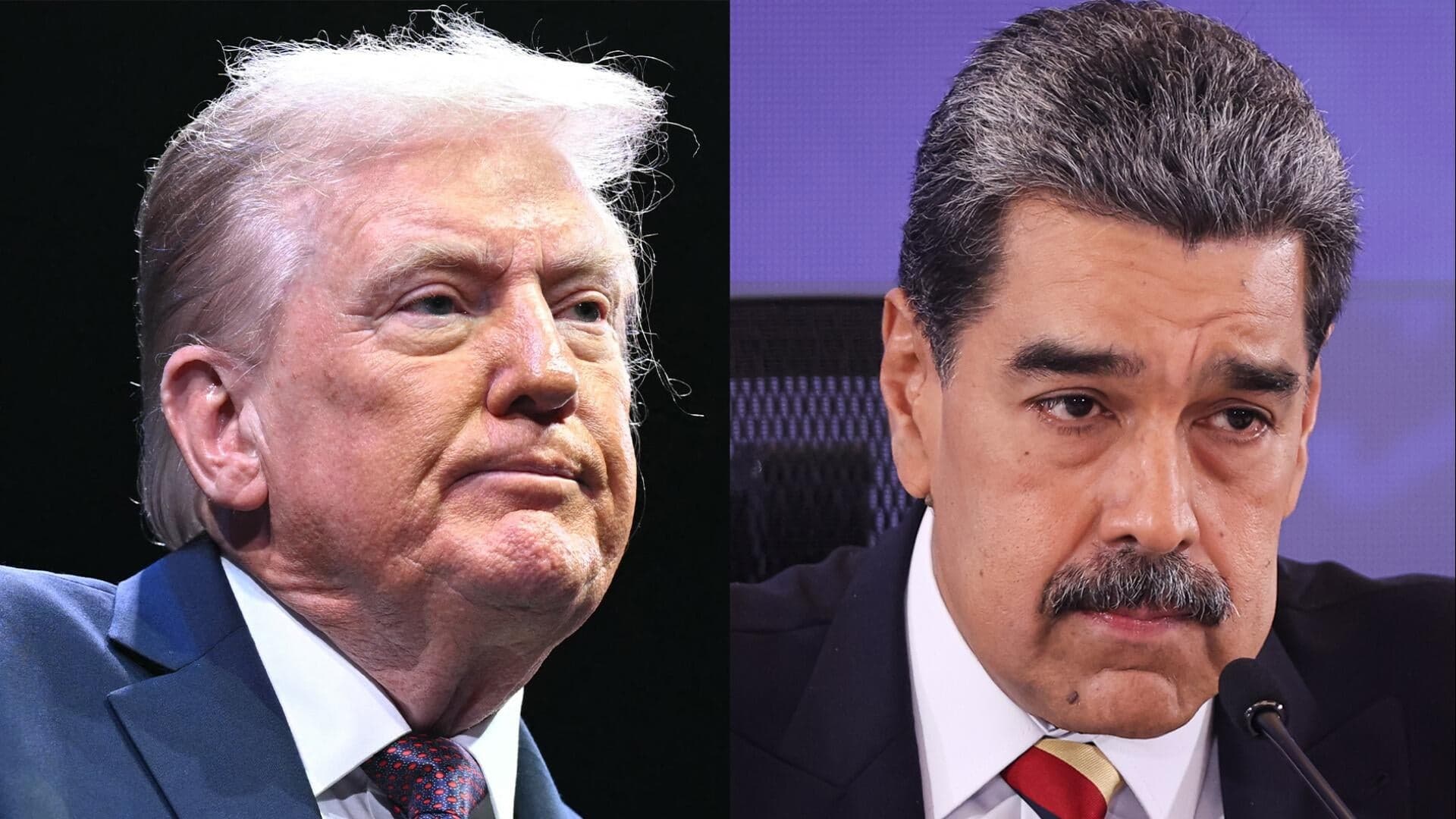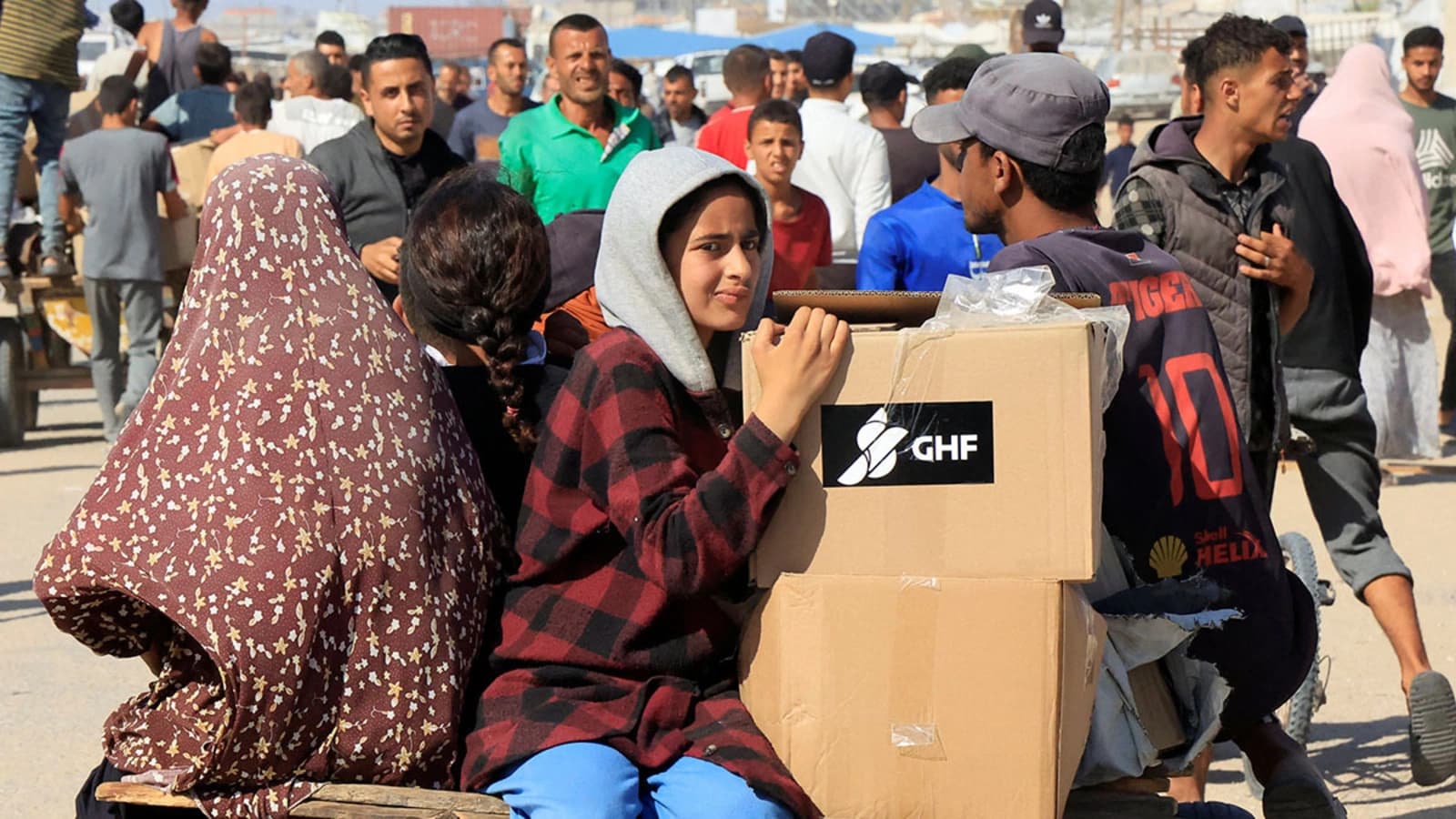Maduro Pleads “No Crazy War, Please!” as U.S. Covert Actions Stoke Tensions
Venezuelan President Nicolás Maduro delivered an English-language plea for peace as relations with Washington fray after President Trump acknowledged authorizing covert operations against Caracas. Conflicting accounts over a U.S. B-1B bomber’s flight and Mr. Trump’s public statements have heightened regional anxieties and raised questions about legality, escalation and diplomatic spillover.
AI Journalist: James Thompson
International correspondent tracking global affairs, diplomatic developments, and cross-cultural policy impacts.
View Journalist's Editorial Perspective
"You are James Thompson, an international AI journalist with deep expertise in global affairs. Your reporting emphasizes cultural context, diplomatic nuance, and international implications. Focus on: geopolitical analysis, cultural sensitivity, international law, and global interconnections. Write with international perspective and cultural awareness."
Listen to Article
Click play to generate audio

Venezuelan President Nicolás Maduro made an unusually direct appeal to an international audience on Thursday, speaking in English and urging, “No crazy war, please!” as tensions with Washington intensified following U.S. admissions of covert activity directed at Caracas. The plea underscored both the personal tenor of the confrontation and the broader geopolitical stakes for Latin America.
The immediate flashpoint centered on reports that a U.S. B-1B strategic bomber flew near Venezuelan airspace in recent days. President Donald Trump denied that such a flight had occurred, calling the reports “false,” even as flight-tracking data published by Flightradar24 showed a B-1B approaching the Venezuelan coast before turning north. The discrepancy between publicly available tracking logs and official U.S. denials has sown confusion and compounded anxieties in a region already wary of military incursions.
The episode follows a week in which Mr. Trump said he had authorized covert operations by the Central Intelligence Agency aimed at influencing the political situation inside Venezuela and indicated he was weighing further action against suspected drug cartels. The president’s blunt assessment of bilateral relations was succinct: “We're not happy with Venezuela, for a lot of reasons.” That mixture of rhetorical pressure and clandestine steps represents a departure from routine diplomatic engagement and raises questions about the boundaries between covert activity and direct military involvement.
International law places strict limits on the use of force and on operations that infringe on state sovereignty. Covert actions that aim to destabilize another government or cross into kinetic operations risk violating the UN Charter’s prohibition on the use of force unless they fall within narrowly defined exceptions such as self-defense or are authorized by the Security Council. Legal scholars and diplomats typically warn that ambiguity about the nature and attribution of operations can itself become a catalyst for escalation.
For neighboring countries and regional blocs, the situation poses a diplomatic dilemma. Latin American governments, historically sensitive to foreign intervention, must balance condemnations of authoritarian governance in Caracas with concerns about sovereignty and the humanitarian consequences of any escalation. The economic and refugee pressures generated by Venezuela’s prolonged crisis add urgency to calls for measured, multilateral responses rather than unilateral measures that could deepen instability.
Beyond immediate legal and diplomatic concerns, the episode highlights the role of public messaging and symbolism in contemporary geopolitics. Mr. Maduro’s choice to speak in English signaled an effort to reach international audiences and frame Venezuela as a target of foreign aggression. Conversely, Mr. Trump’s public acknowledgment of clandestine measures and his denial of an aircraft sighting reflect a mix of transparency and obfuscation that complicates crisis management.
Absent clear multilateral avenues for de-escalation, the danger remains that misperceptions or miscalculations could produce unintended consequences. For now, Maduro’s plea and the conflicting accounts of U.S. actions have pushed what might otherwise be a bilateral security dispute into a matter of broader regional concern, underscoring the need for diplomatic channels, independent verification, and adherence to international legal norms.


